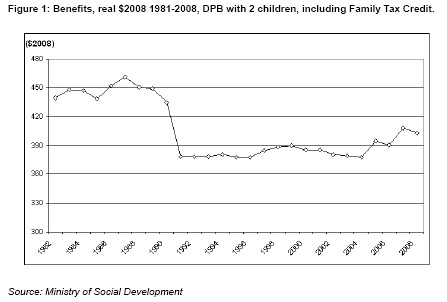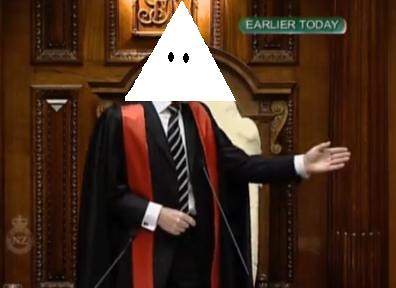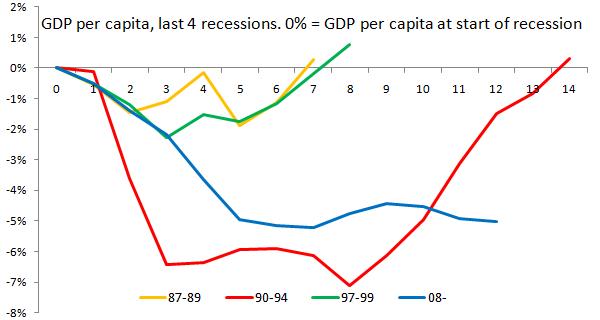Over on Kiwiblog, DPF attempts to defend MMP's undemocratic threshold. To his credit, he opposes Phil Goff's nakedly self-interested desire to remove the "electorate lifeboat" clause, and supports a lower 4% threshold, as recommended by the Royal Commission on the Electoral System. But he supports a threshold for stability, to prevent "an Israel type situation where miniscule extremist parties have massive say in who forms the Government".
This is at its heart the same reason given by the Royal Commission. In their report, they argued:
the Commission considers that the [4%] threshold is a justifiable and desirable means of preventing the proliferation of minor parties in the House. Such a proliferation could threaten the stability and effectiveness of government.
Which probably sounded good back in the safe, conformist, 2-party world of 1986, where we hadn't had a coalition government for over fifty years, and political difference and dispute was seen as threatening. But to modern eyes, it seems quaint - not to mention sniffily undemocratic. To point out the obvious, we currently have 8 parties represented in our Parliament, and in the past have had as many as 9. And it hasn't threatened the stability or effectiveness of government one bit (to the contrary, the present government is arguably
too effective, as its
constant abuse of urgency shows).
There are two reasons for this. The first is that our political culture doesn't support destabilising, winner-take-all, toys-out-of-the-cot tantrum politics. Winston Peters tried that in 1996, the electorate punished him for it in 1999, and our parties have learned their lesson: we expect them to get along, work together on the areas where they share common ground, and manage their differences like adults rather than trying to dictate to one another like children. And largely, they do. Our parties compromise with another. Areas of serious dispute are redlined in support agreements, and put aside for the term or punted to committee. Threats to withdraw confidence and supply and collapse the government unless they get their way are notably absent.
The second reason is mathematical: a "proliferation of minor parties" actually increases stability and effectiveness, by increasing the number of possible majority coalitions, thus reducing the bargaining power of any one party. We have a good example of this in the current Parliament: ACT can't "hold the government to ransom" and demand big policy concessions because National has an alternative majority with the Maori Party. Meanwhile, the Maori Party can't "hold the government to ransom" because the National has an alternative majority with ACT. The two parties effectively act as a check on each other's demands. It was a similar situation in the 2002 Parliament, with Labour able to gain a majority with any one of United Future, NZ First, or the Greens. Having an extra 3 or 4 kibble parties at the bottom end simply increases the balance; if one of them doesn't like your policy, then you go to another. You're only in trouble if they all don't like your policy, in which case its probably well-deserved (just as it would be if both ACT and the Maori Party opposed something of National's).
So, "stability" is an illusion. There's no reason to think that a more representative Parliament would be less stable, or a more representative government less effective, than at present. Meanwhile, this illusion costs us in democratic terms, by effectively disenfranchising (at the last election) 6.5% of the population. DPF would probably counter that those people and their views and votes aren't important. I disagree. A core principle of democracy is that everyone's vote should count equally. Under current arrangements, those cast for small parties don't. That is undemocratic, it is unfair, and it is wrong. While I disagree passionately with many of our small parties, they are just as deserving of democratic representation as I am. Those who would support their disenfranchisement need an exceptionally powerful reason to justify it. And its clear from the above that "stability" just doesn't cut it.


